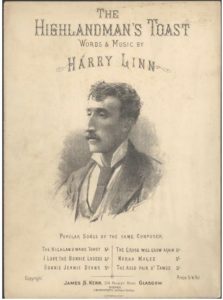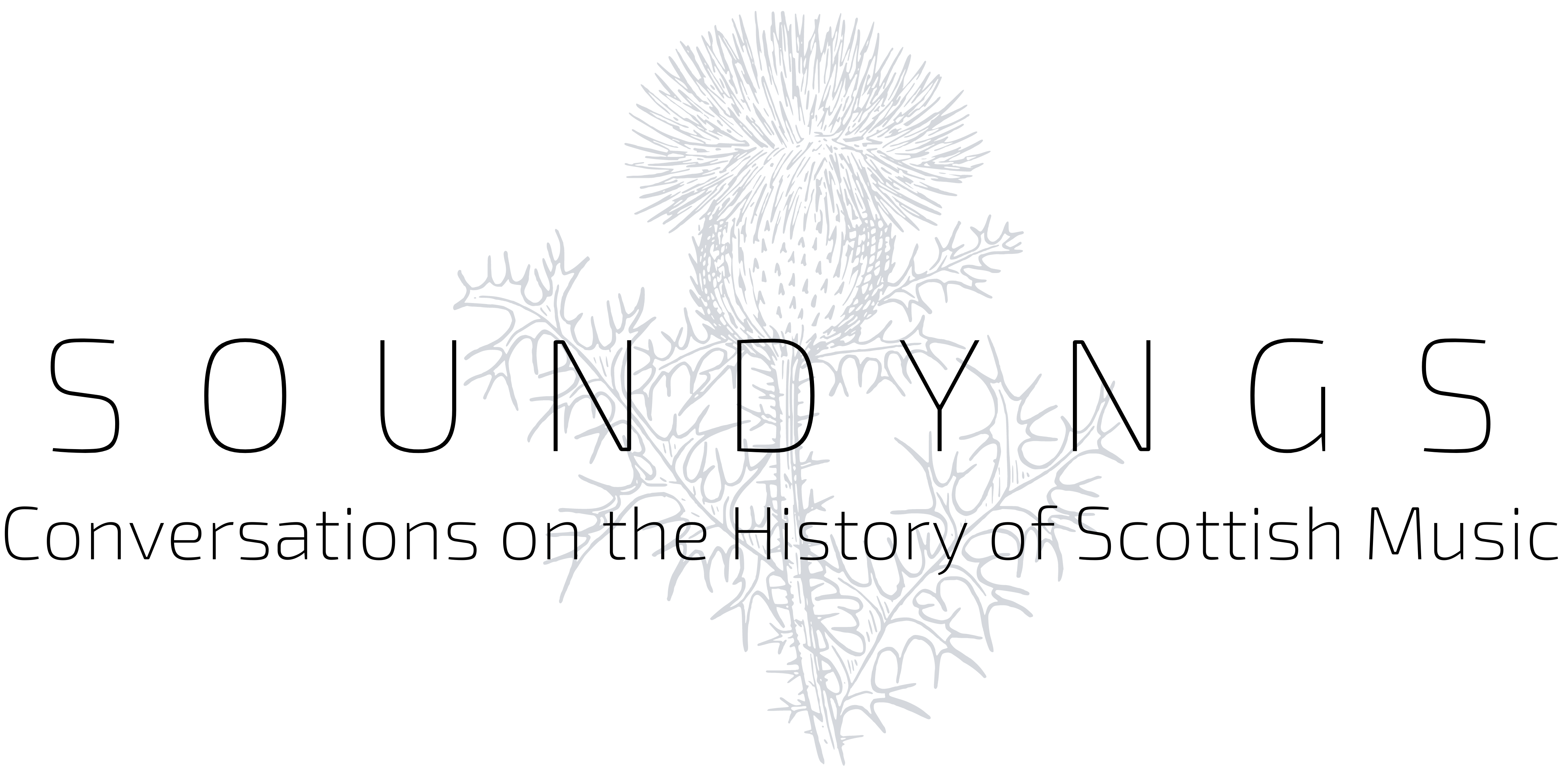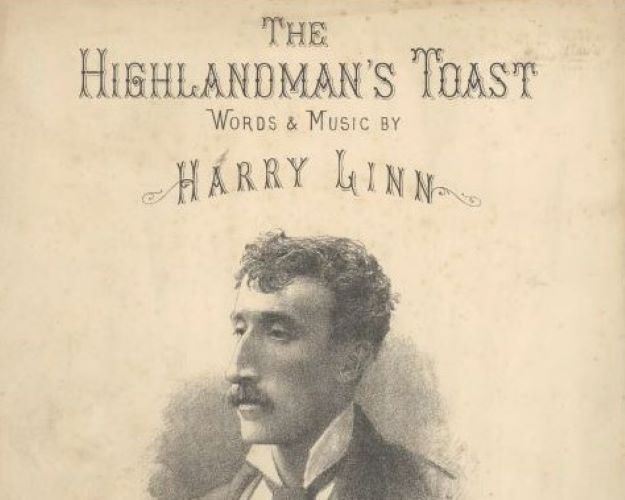
Editor: digitised historic newspaper adverts and short reviews are a great resource for mapping historical musical activity, as this post demonstrates.
Crack, crack, goes my whip, I whistle and I sing.
I sit upon my wagon I’m as happy as a king.
My horse is always willing, and for me, I’m never sad,
There’s none can lead a jollier life than Jim the carter lad.
“Jim the Carter Lad”, from Harry Linn’s Fireside Songster
Harry Linn (1845-90) is a name that barely rates a mention in standard histories of the Music Hall, but he was a hugely successful songwriter and performer in the Music Halls of Scotland and northern England. Many of his songs have become well-known folksongs, notably:
- Jim the Carter Lad
- Eggs for your breakfast in the morningand
- The birds upon the trees.
Drawing on a wide range of 19th-century sources, this online article gives the most complete biography of Linn currently available and allows you to access further information about his best-known songs, with recordings wherever possible. The article is part of ongoing project to assess the impact of Music Hall songwriters on traditional music in English-speaking countries: Folksong and Music Hall.

John Baxter is an academic at the Open University with an interest in interdisciplinary teaching and research. In recent years he has been pursuing a personal project tracing the links between Music Hall and folk songs in the Anglophone world. His website aims to find the stories behind the songs, and to encourage people to think about singing them. So far, the site has notes on around 300 songs, with information on singers and composers.
Please contact him via the site with comments or suggestions for sources, songs or singers.


John,
In regard to your project and the pattern of spread of Music Hall songs I can share a quite early American published source for Harry Linn’s ‘Jim, The Carter Lad’ dating from 1870:
The New Comic Songster: A Collection of New Humorous Songs, Oliver Ditson & Co., Boston
An appearance in print in the US just two years later than the first English print reference to date.
Regards
Mike Bostock
Early English Banjo Project
https://www.youtube.com/@earlyenglishbanjo/videos
Thanks Mike – I’ll send a note to John with the link to your comment, in case it’s lost in his media feeds!